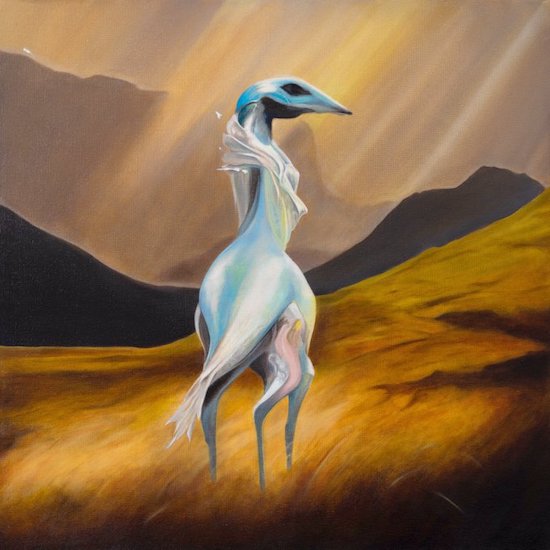Bearing witness is a real drag.
Not far from where I grew up, across the Detroit River and a nice drive after that, there’s a Canadian national park called Point Pelee. Jutting out into Lake Erie, it’s a magical spot for bird watchers. And butterflies – the orange and black monarch butterfly to be specific. See, Point Pelee is one of the major stops in the great monarch migration, thousands upon thousands of them every autumn, waiting until the conditions are right to cross the lake and slowly make their way south to Mexico. Beautiful and delicate, it seems almost unimaginable that such a creature could successfully undertake that journey.
I first learned about global warming and humankind’s impact on the environment and ecosystems on Earth Day in 1985. I was five, and back then, monarchs were common and plentiful in southeastern Michigan. But the monarch population was already declining, and it’d get worse as I grew up and older. Nowadays, you can maybe lure a few of them into garden throughout the summer if you plant the right stuff. Nowadays, they’re on the endangered species list. Yeah, bearing witness sucks.
I’m thinking about butterflies as I listen to Ebe Oke’s audacious debut LP, SPECIES. I’m thinking about precarity and balance, about harmony and excess. And commitment – imagine being so small and flying so far. I’m thinking about how it’s almost twenty-one degrees outside and how the Detroit River is six degrees warmer than it should be at this time of year. My mind is swimming.
You might remember Oke from a short-run collaborative record they made with Brian Eno and Laurie Anderson that came out just before the pandemic, but their bona fides stretch back much further than that. They cut their teeth studying with Stockhausen, then scoring for dance, film, and the fine art world, including commissions for AA Bronson and Fredrikson Stallard. SPECIES goes back even further – to kernels of songs from Oke’s childhood. In a sense, this record has been in the works for decades.
A double album released in two parts – the first to coincide with a gallery show of Oke’s visual work – SPECIES is a richly produced, highly dramatic recording. Almost operatic. Despite being a fairly low-tempo affair, it’s percussive and booming and string heavy, peppered with mutated field recordings of birds and insectoid rattles. Instrumentally intricate, these tracks often feel like finely sculpted frames built to showcase Oke’s voice. Unadorned, it’s a strong instrument that they confidently wield, but it’s rarely let be. Instead, it’s roboticised, stretched, pitch-shifted, generally transhumanised until the line between and human and synth is blurred almost beyond recognition. For those who are into it – and I am – Oke’s commitment to the bit is inspiring, and the throaty rumble of their manipulated vox soon becomes beguiling.
Speaking of manipulated vox, if one were to chart Oke’s work in relation to other artists, it’d fall somewhere along The Knife axis, nearer to their weirder, perhaps less-appreciated work. Specifically, I’m thinking of their collaborative Darwinian opera with Mt. Sims and Planningtorock, Tomorrow In A Year. And if we’re going to get micro and boil it down to a specific track, Oke’s work can at times feel like a clear antecedent of that album’s epic outlier, ‘The Colouring Of Pigeons’. (This, to be clear, is commendable.) Though Tomorrow is perhaps a bit more concrete and willfully alienating than SPECIES, both records share a certain spirit, an unafraid-ness, an unwillingness to be anything other than what they are. And then there are the birds.
As an openly queer kid growing up in rural Georgia in the American South, Oke found sanctuary and solace in nature among what they describe as a “menagerie of exotic birds,” which they treated as “friends” and “familiars”. Drawing on those formative experiences, Oke employs these “avian avatars” in conjunction with the aforementioned field recordings in an attempt to centre the non-human other, and in doing so, somehow bestows a sort of agency and a distinct liveliness upon sound sources that in 2022, in less imaginative hands, could come across as rote. There’s real anima there.
Which brings us back around to the butterflies, to the birds, to those things we seldom centre. Back in the lockdown era, I remember a lot of folks clowning on field recordists and nature sound users. And yeah, I get why they were doing it, but even then, as every musician in the world discovered their garden, it seemed like a cynical response to something so earnest. To be sure, a record like Oke’s lands miles away from someone hanging binaural mics out their window, but as a gesture, as an action, any centering of the non-human around us is something we need more of, lest we all simply bear witness as the things that make this world worthwhile slip away.
Still, it can’t hurt that the end result here is strange and empathetic and features characters like Brian Eno and Jah Wobble.


